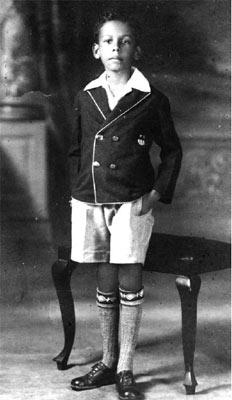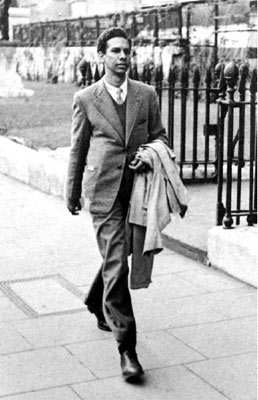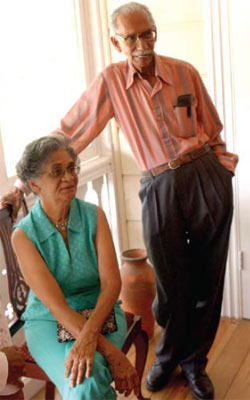
 It is a measure of the man that many of the public tributes for the quality of his life have come from people who admit to never having met him. In these parts, that kind of distant admiration is commonly reserved for celebrities from the sport and entertainment realms. It is a measure of the man that many of the public tributes for the quality of his life have come from people who admit to never having met him. In these parts, that kind of distant admiration is commonly reserved for celebrities from the sport and entertainment realms.
The late John Spence was no entertainer, and there is no record of sporting prowess; indeed, nothing suggests that he was given to publicity, though his was a very public life in the sense of his contributions.
What made this man remarkable was his unfailing commitment to bringing his considerable and expansive knowledge into the public domain in order to help shape and inform on matters of concern.
Former head of the Public Service, Reginald Dumas, a true peer of Professor Spence’s, was moved to write of their shared despair that their solitary voices were drowned out by the cacophony of disorder and ignored by the masses for whom they were meant. It would have been easier to retreat into silence in these twilight years, but both persevered – Spence had written his last Express column hours before his passing – and it must be something consolatory, at least to Mr Dumas, to see the outpouring of respect that has come from all quarters.
Letters to editors lauded his honesty of purpose, commitment, dedication, scholarship, determination, his unassuming nature, and his care; he was hailed as a legend, an icon and dubbed the enlightened one. In one way or another, most suggested that his writings should be published.
Good that they soldiered on despite misgivings; you really never know who you are touching!
 Those who knew him have paid tributes as well. The National Foodcrop Farmers Association claimed him as friend and adviser for 30 years, saying he was one of the foremost thinkers in agriculture and an everlasting advocate for its development. Those who knew him have paid tributes as well. The National Foodcrop Farmers Association claimed him as friend and adviser for 30 years, saying he was one of the foremost thinkers in agriculture and an everlasting advocate for its development.
His role in agriculture had been enormous. He was Dean of the Faculty of Agriculture for six of the 26 years he spent at St Augustine as a lecturer and professor of botany – he was one of the first lecturers when this campus was born.
Campus Principal Professor Clement Sankat said he had worked with him “at the beginning of my career in 1978,” and he had been a “strong advocate for Agricultural Engineering at St Augustine.”
“I have always held him in high regard because he was a fine gentleman, a thoughtful individual on many national issues of the day, a passionate advocate for agriculture and someone who served us very well at The UWI.”
His research was diverse, including work on cocoa and root crops and he was an avid anthurium cultivator, but he was also tireless in his campaigns to put agriculture where it belongs on the national agenda. As an Independent Senator serving in the third, fourth and fifth republican Parliaments (1987 to 2000) he was most vocal on issues relating agricultural policy and land acquisition, though he was equally capable of informed contributions on any subject, especially education, governance and constitutional matters.
While he served as a Senator, he was also Head of the Cocoa Research Unit at St Augustine, where he has been credited for revitalising the Unit and restoring its international acclaim as a site of valuable cocoa research.
 All the while, this remarkably private man’s public life was unfolding with service at every level – recognised by a Chaconia medal (Gold) as far back as 1980 when he was just around 50. All the while, this remarkably private man’s public life was unfolding with service at every level – recognised by a Chaconia medal (Gold) as far back as 1980 when he was just around 50.
He served many important institutions such as NIHERST, the Caribbean Industrial Research Institute, Association of Professional Agricultural Scientists of Trinidad and Tobago, the International Board for Plant Genetic Resources (Rome) and the International Centre for Tropical Agriculture (Colombia), the USA Academy of Sciences Committee on Managing Global Genetic Resources, and CARDI. He sat on advisory committees to the Inter-American Institute for Cooperation on Agriculture and the Commonwealth Science Council; the list is longer.
His reach was formidable.
And so, the boy who came from St Vincent when he was 11 was laid to rest on March 12 when he was 83, after a funeral at the Sport and Physical Education Centre (SPEC) on the Campus where he had spent a lifetime.
Hundreds came to pay their respects to John Arnott Spence, and to offer their support to his widow, Yolande, their three sons, Malcolm, Louis and Richard, and his eight grandchildren. The President(s) outgoing and incoming – George Maxwell Richards and Anthony Carmona – were there and so were academics, clergy, politicians, agriculturalists, students, and perhaps many who had never met him in life.
The mark of a true icon.
Photograpy of John Spence through the years: from little boy to confidence-brimming youth, and family man with wife, Yolande. Photos courtesy Richard Spence.
By: Vaneisa Baksh |





